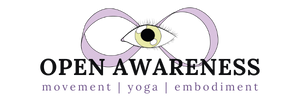14 Feb Be What You Are
“The chief element of happiness is this: to want to be what you are.”
-Erasmus
A quote made more poignant when a quick Wikipedia study on Erasmus reveals he was most likely a gay man serving loosely as a Catholic priest who, to distance himself from the affairs of his youth, extolled the virtues of marriage between a husband and wife in his later years.
Alas, the tragedy of wisdom is that living it is so hard to do.
Or is it?
Yes…I think it is.
Society, blegh
We live in a society whose customs are so ubiquitous we often forget to question them, and when questioning we may fear isolation or abandonment from our people. Do I want to do this, I ask, or am I doing it because it’s what I’ve learned I should do?
For many years I thought I was actively subverting the customs of our society. I quit a corporate job, so that was that for capitalism (let’s just ignore my earned income that paid my rent and bought my groceries). I stopped wearing a bra and putting on makeup for a while, take that patriarchy! At one point I had two, count ’em two boyfriends AT THE SAME TIME. Norms be damned, I’m poly now.
In all of these cases I was doing what I wanted to do, sure, but I was still so fully immersed in the ocean of custom that I could only ever see myself in opposition to it. It’s an entwinement; it wasn’t liberation from the way things are, I was just embroiled in a different, antagonist role.
Do I want to do this, I ask, or am I doing it because it’s not what I’ve learned I should do?
Flip sides of the same coin.
Looking at that coin, I wonder if there is any component of “me” that exists independently of everything else out there. And then I wonder, who is it that’s looking at the coin?
Who is me?
You may have heard this thought experiment posed before, perhaps in a guided meditation. Sit still and observe your thoughts and feelings as they rise and fall, without identifying with any of them. As you witness the changing nature of your mind, consider this: who is doing the witnessing?
If the answer is “me” then who is that? There must be something there besides the thoughts and feelings. “Me” must be someone who is separate from the thoughts or feelings. “Me” must be some unchanging thing.
In meditation we (often struggle to) spend more time as the observer and less time identifying with the objects of observation.
It’s often a repeated and frustrating process of noticing you’ve gone fully into a thought or feeling, winding yourself around it in loops and knots, and then remembering your directive to not identify with it and for a split second distancing yourself from it before looping back around it or another thought again, and noticing/remembering/distancing ad infinitum.
It’s a lifelong practice that requires a lot of patience, but the spaciousness of the observer version of “me” does become more familiar and easier to access over time, both in and out of meditation.
So what do we do with Erasmus’s hard-to-live wisdom, that happiness is to want to be what we are?
About Happiness
For me, it’s both material and abstract.
In the material sense, I keep asking myself whether what I’m doing is something I really want or need or if it’s something I think I should be wanting or needing without questioning why. I’m getting better at answering myself honestly and changing my behavior accordingly. Because I do want to be what I am, it’s just hard to determine what that is sometimes.
In the abstract, spiritual sense I rely on yoga, which tells me that my true self is the “me” that’s able to observe, that suffering happens when I forget and instead identify myself with, well, anything else. Because everything else inevitably changes, and that hurts. Of course, that feeling of hurt, that’s something the “me” can observe just as well. Thus, the forgetting and remembering, the repetition and spaciousness, of practice.
It may seem paradoxical and it sure feels like it is. But I think that’s part of it, too. I want to be what I am, skin and bones and spirit and all, paradoxes included. When I start wanting to be free of paradoxes, totally clear and all-knowing (or rich and famous and unhindered by my human folly), I’m wanting to be what I’m not. And that, Erasmus might say, isn’t going to lead to happiness.
